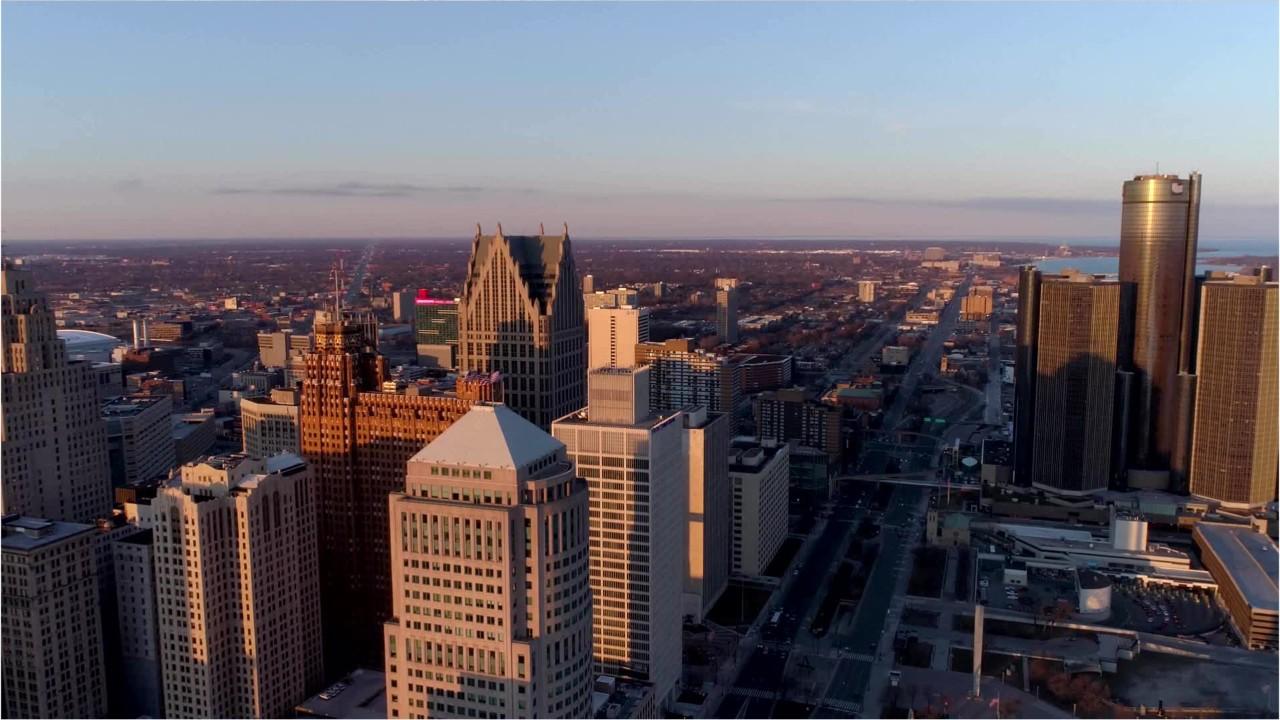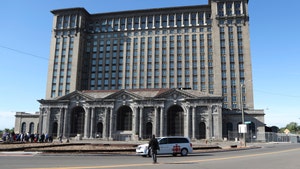Detroit's economy: Where is the money in the Motor City?
With the second Democratic debate taking place in Detroit, Michigan, Tuesday and Wednesday, FOX Business is taking a look at the economy of the Motor City.
Detroit has about 670,000 residents, of which about 38 percent are white and 53 percent are black. About 83 percent of Detroit at least graduated high school and more than 16 percent have their bachelor's degree or higher. However, the national average of at least a bachelor's degree is closer to 32 percent, nearly double what Detroit has.
The median income level of Detroit is just above $35,000 while the nationwide average is more than $57,000. In fact, the percentage of Detroit residents who are living below the poverty level in the last 12 months is around 23 percent. The unemployment rate in the city (12.2 percent) is three times higher than the nationwide average (4.1 percent).
However, if you want your dollar to stretch further in the real estate market, head to Detroit. The average home price there is $74,400 while the nationwide home price range is between $217,600 to $343,300.
More than anything, when people think of Detroit, they think of the auto industry. But Detroit has the highest car insurance rates in the state of Michigan, which already has the highest insurance rates in the United States.
The average car commuter in Detroit spends 24.4 minutes getting to work, with nearly a quarter of metro Detroit residents commuting more than 50 miles to get to their job. Buses are still widely used by commuters, but overall, some experts say the city's public transportation system is troubled.
Since 1863, the city prided itself on its public transportation, from horse-pulled streetcars to converting the system to fully electric in 1895. From 1900 to 1922, southeast Michigan had regional transit, however, the increased popularity of cars limited the growth of that transit system.
The Regional Transit Authority never developed another proposal for an improved system. That stalemate remained until the Metropolitan Transportation Authorities Act passed in 1967.
The Southeastern Michigan Transportation Authority was created, but it couldn’t leverage taxes to buy the Department of Street Railways, so the city created the Detroit Department of Transportation in 1974. They weren't meant to remain separate, but with an ever-increasing city-suburb divide, no lawmakers could agree to unite them.
In 2016, a proposal was presented for an improved public transportation system, but voters defeated it.
Hope arose in May 2017 when the QLine streetcar plan was unveiled. Business leaders said the 3.3-mile system would be a more reliable form of downtown transportation and would be an important step to strengthening their regional transit system. But, the system faced delays, low ridership, frequent mechanical failures and an ever-increasing budget.
CLICK HERE TO GET THE FOX BUSINESS APP
Beyond its transportation woes, the city continues to have a crime issue. In 2018, the Detroit Point reported violent crime decreased by 2 percent and that the city's homicide number was the lowest they had on record, which delighted residents. However, Detroit has the third-highest murder rate in the country and the second-highest violent crime rate in the nation.























